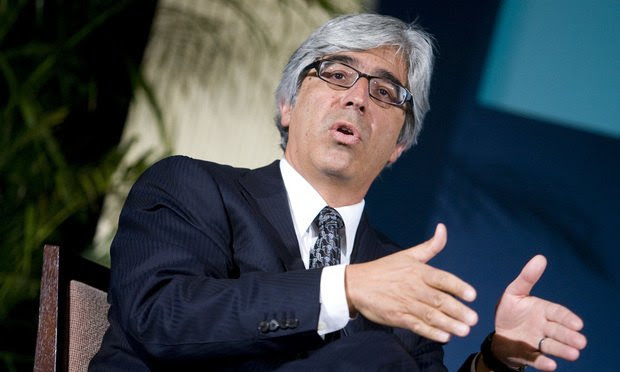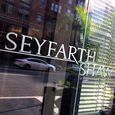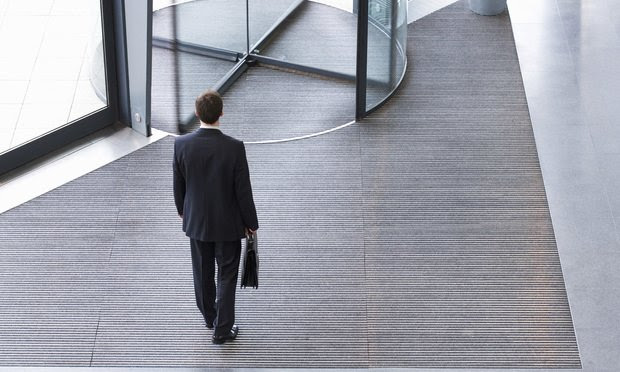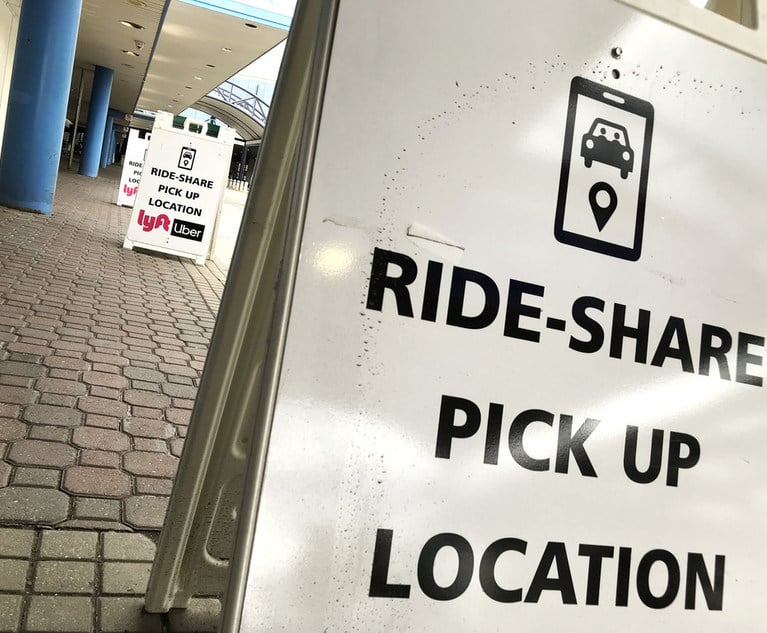Labor of Law: Revisiting a 1977 Job Bias Ruling | Ogletree Shareholder Up for Court Seat | Lawyer Scolded in 7th Circuit | AI Headlines | Who Got the Work
Welcome to Labor of Law. We're looking at a bias case on the SCOTUS conference list Friday, and scroll down for more: Ogletree's Scott Hardy is up for a federal court seat, and Jackson Lewis is seeking fees after the 7th Circuit dinged a lawyer in an L&E case. Thanks for reading!
January 09, 2020 at 12:00 PM
15 minute read
Welcome back new and returning readers of Labor of Law, our weekly look at news and trends affecting the L&E community. On the clock this week: Revisiting a 1977 job bias ruling at the US Supreme Court | Ogletree's Scott Hardy, a Trump court pick, faces Senators | Jackson Lewis seeks fees in 7th Circuit | AI headlines, California's AB5 & more | Who Got the Work
Tips and feedback are welcome. I'm Mike Scarcella in Washington. You can reach me at [email protected] and on Twitter @MikeScarcella. Thanks for reading!

Revisiting a 1977 Job Bias Ruling
Some justices, including Justice Clarence Thomas, are not subtle at all about showing a desire to reconsider past rulings. Others, like Justice Samuel Alito Jr., are somewhat more subtle and willing to hint in opinions until someone gets the message and brings a challenge.
In January, the high court denied review in the case Kennedy v. Bremerton School District in which a public school football coach challenged his dismissal for refusing to stop saying prayers on the field at the end of each game. But the most interesting aspect of the denial was a statement by Alito, who was joined by Justices Thomas, Neil Gorsuch and Brett Kavanaugh. They indicated interest in revisiting the 1977 precedent stating when there is an "undue hardship" on an employer to accommodate an employee's religion under Title VII.
U.S. Solicitor General Noel Francisco urged the justices to take the case Patterson v. Walgreens, a case raising a challenge to that very 1977 decision—Trans World Airlines Inc. v. Hardison. Hardison's "doctrinal underpinnings" have eroded over time, he wrote. In Hardison, the high court said that that requiring an employer "to bear more than a de minimis cost" to accommodate an employee's religious practice "is an undue hardship."
The justices on Friday are set to review Patterson v. Walgreens, and hundreds of other petitions, at the court's private conference.
A de minimis cost is "very small or trifling," wrote Francisco, referring to Black's Law Dictionary. That is an "ill fit" with the understanding of "undue," which means excessive or exceeding what is appropriate, he said. If "undue" requires courts to engage in balancing, he argued, "that balancing should be solely on the employer's side of the equation; that is, the court should weigh the cost of a given accommodation against what the particular employer may properly be made to bear."
Darrell Patterson, represented in the high court by Gene Schaerr of Schaerr | Duncan, was a Walgreens training officer in the Orlando call center. He said his Seventh Day Adventist beliefs prevented him from working on his Sabbath.
For six years, Walgreens was able to accommodate him by moving training schedules and allowing voluntary shift swaps. But in 2011, a change in call centers resulted in less flexibility in training schedules or shifts. To accommodate his beliefs, Walgreens offered him a demotion to his previous job or transfer to a larger facility, either of which would have made it more likely it could accommodate his schedule. After he declined both options, he was fired.
Besides the Hardison question, Schaerr also raised issues around the meaning of "reasonably accommodated" and the use of future hardships to show "undue hardship."
Walgreens' counsel, Jenner & Block partner Adam Unikowsky, urged the court to deny review on all three issues. Unikowsy said Congress for years has not moved forward on any legislation that would scrap Trans World Airlines Inc. v. Hardison. Patterson, Unikowsky told the justices, "would retroactively apply a new, heightened 'undue hardship' standard to Walgreens and every other employer in the country that has denied a religious accommodation within the statute of limitations."
Six amicus briefs by churches and others have been filed supporting Patterson. —Marcia Coyle

Ogletree's Scott Hardy Faces Senators for Confirmation Hearing
W. Scott Hardy (above), a shareholder at Ogletree, Deakins, Nash, Smoak & Stewart in Pittsburgh, faced the U.S. Senate Judiciary Committee on Wednesday for his confirmation to the U.S. District Court for the Western District of Pennsylvania.
Hardy appeared with a group of other nominees, and he didn't face any great scrutiny—unlike Cory Wilson, a Mississippi state appellate judge who's up for a federal trial court seat. Wilson recently rejoined the conservative legal group the Federal Society, and that drew a few questions from Senate Democrats, my colleague Jacqueline Thomsen reported.
Hardy answered generally run-of-the-mill questions from panelists. "The text is the law," he said in one exchange.
Hardy's opening statement gave a round of thanks to a wide number of people, including his legal assistant of 20 years. Hardy's clients at Ogletree have included an array of corporations, health systems, colleges and universities. In one case, Hardy was co-counsel to PJAX Inc. in cases involving EEOC claims of discriminatory hiring practices and an alleged sexually hostile workplace. The cases settled for an aggregate $2.5 million.
Hardy has served on Ogletree's board of directors since 2018. From 2012 to 2018, he was the Pittsburgh office managing shareholder. Hardy revealed in a financial disclosure, filed as part of the confirmation process, that he earned $616,500 at the firm in 2019 and $602,300 in 2018.
Before Hardy joined Ogletree in 2010, he was at the Pittsburgh firm Cohen & Grigsby. For several years, he served as the deputy group head of the labor and employment practice group.

Jackson Lewis Seeks Fees After 7th Circuit Scolds Opposing Counsel in L&E Case
A labor and employment civil action in the U.S. Court of Appeals for the Seventh Circuit offers us a peek inside billing rates. The federal appeals panel was asked last week to award nearly $73,000 in legal fees and costs as a sanction against a Chicago-area lawyer who submitted a "monstrosity" of a court brief in a case the presiding judges described as a "shameful waste of judicial resources."
The Seventh Circuit last month said the lawyer, Jordan T. Hoffman, would be required to pay "reasonable" legal fees for letting a client file a brief that the judges called "bizarre" and "incoherent." In November, Judge Diane Sykes declared in a rare admonition: "Bad writing does not normally warrant sanctions, but we draw the line at gibberish."
Attorneys who represented the corporate defendants in the labor and employment case—the candy maker Mars Inc. and Kenco Logistics Services LLC, which managed a Mars warehouse in Illinois—on Friday filed declarations and invoices showing legal services in the case cost about $73,000.
Jody Moran, a Jackson Lewis P.C. shareholder in Chicago and lead counsel for Kenco, said the firm was seeking about $30,700 in fees and costs. Jackson Lewis said it billed at $265 an hour for partners and $235 for associates, for Kenco.
"This rate is substantially less than the normal billing rate for the attorneys assigned to the case," Moran told the appeals court. Moran said she typically bills at $640 an hour, and senior associate Julia Argentieri, who worked on the case with her, charges $370 per hour.
"Our rates are equal to or less than that of other lawyers in medium-to-large Chicago law firms with similar backgrounds, qualifications, practices and experiences," Moran wrote in a declaration. Jackson Lewis has about 900 lawyers in more than 50 offices across the country.

Who Got the Work
>> A team from Gibson, Dunn & Crutcher, including partner Theodore Boutrous Jr. (above), represented Walmart in a class action employment dispute in the Ninth Circuit. A panel this week upheld a trial judge's order awarding tens of millions of dollars in damages to truck drivers alleging employment-related claims. Michael Rubin of San Francisco's Altshuler Berzon argued for the workers, and Boutrous argued for Walmart. My colleague Alaina Lancaster has more here on the ruling.
>> "Two African-American executives at McDonald's Corp. sued the company alleging racial discrimination and civil rights abuses," The Wall Street Journal reports. Chicago lawyers Carmen Caruso and Linda Chatman represent plaintiffs Vicki Guster-Hines and Domineca Neal. Proskauer partner Nigel Telman, who leads the employment practice in the Chicago office and is co-head of the employment litigation and arbitration group, is a lawyer for McDonald's. A McDonald's representative reportedly said in a statement: "While we disagree with characterizations in the complaint, we are currently reviewing it and will respond to the complaint accordingly." Read the complaint here in Chicago federal district court.

Around the Water (Robot?) Cooler
Technology
Welcome to Walmart. The Robot Will Grab Your Groceries. "Walmart is one of several grocers including Albertsons Cos. and Kroger Co. that are using automation to improve efficiency in a fast-growing but costly business that comes with a range of logistical challenges. The backroom robots could help Walmart cut labor costs and fill orders faster and more accurately." [WSJ] Bloomberg News has more here.
The Humble Office ID Badge Is About to be Unrecognizable. "Researchers are developing a technology called gait recognition, which uses cameras to identify people based on their body shape and how they move, and say it could one day be implemented in U.S. offices. In places with especially tight security, such as workplaces that handle hazardous materials or heavy machinery, several different ID technologies could be linked to repeatedly identify workers as they move around." [WSJ]
Illinois Says You Should Know If AI Is Grading Your Online Job Interviews. "A new Illinois law—one of the first of its kind in the US—is supposed to provide job candidates a bit more insight into how these unregulated tools actually operate. But it's unlikely the legislation will change much for applicants. That's because it only applies to a limited type of AI, and it doesn't ask much of the companies deploying it." [Vox]
Ring Fired Four Employees for Abusing Access to Customers' Video Footage. "The company's security and privacy practices have come under fire in recent months following a wave of cyberattacks and reports of lax internal policies around employees' access to customer data." [Business Insider] Read the letter Amazon's public policy head sent this week to US Senators.
Workplace culture
McDonald's Looks Beyond Party Culture. "Chris Kempczinski, the new chief executive, is seeking to restore a more professional culture at McDonald's after what some current and former employees said was his predecessor's late-night socializing with some executives and staffers at bars and flirtations with women employees. Mr. Kempczinski is looking for a top human-resources executive to help him change that culture, people familiar with the matter said." [WSJ]
Workplace Wellness Comes for the Working Class. "Employers who shy away from smokers or enforce weight-loss programs often cite their rising health-care costs in America's private-insurance market, and federal housing authorities say it costs too much to clean up units after smokers have lived in them. The people who are most likely to have health problems, then, are painted as a financial burden, a threat to the bottom line. In reality, a lack of stable employment and benefits plays a foundational role in the problems that now make these people unhireable, even if they're good workers and genial colleagues." [The Atlantic]
What to Know About NJ's New Hair Discrimination Law. "With the newly signed CROWN Act banning race-based hair discrimination in the workplace and other areas of public accommodation, New Jersey employment lawyers say employers must take stock of existing grooming policies." [Law.com]
U.S. Companies Are Forcing Workers to Train Their Own Foreign Replacements. "Opponents of job outsourcing are making a holiday-season appeal to President Trump: Stop U.S. companies from forcing American workers to train the very same cheaper foreign laborers who will soon replace them." [Axios]
Courts and cases
Families, Agencies Upended by Au Pair Ruling. "Lawmakers have been inundated with questions about the ramifications of a recent federal court ruling involving pay for au pairs, according to a Lexington Democrat who filed legislation aimed at providing a grace period to families that may have been blindsided by the decision." [WBUR] The NYT has more here. Read the decision from the U.S. Court of Appeals for the First Circuit.
 Report: Plaintiffs in Employment Cases Won Class Certification at Record Rates in 2019. Plaintiffs in employment cases scored wins on class certification motions at record rates last year, according to a new report from Seyfarth Shaw, my colleague Ross Todd reports. The firm's 16th annual report on workplace class action litigation, which analyzed 1,467 decisions in cases brought against employers in federal and state courts across the country, found that in 2019 plaintiffs secured conditional class certification rulings in 81% of wage and hour cases, 65% of ERISA cases, and 64% of employment discrimination cases. [Law.com]
Report: Plaintiffs in Employment Cases Won Class Certification at Record Rates in 2019. Plaintiffs in employment cases scored wins on class certification motions at record rates last year, according to a new report from Seyfarth Shaw, my colleague Ross Todd reports. The firm's 16th annual report on workplace class action litigation, which analyzed 1,467 decisions in cases brought against employers in federal and state courts across the country, found that in 2019 plaintiffs secured conditional class certification rulings in 81% of wage and hour cases, 65% of ERISA cases, and 64% of employment discrimination cases. [Law.com]
Employee speech
Amazon Threatens to Fire Critics Who Are Outspoken on Its Environmental Policies. "Amazon has warned at least two employees who publicly criticized the company's environmental policies that they could be fired for future violations of its communications policy. A lawyer in the e-commerce giant's employee-relations group sent a letter to two workers quoted in an October Washington Post report, accusing them of violating the company's external communications policy." [The Washington Post]
Gag Clauses for California State Workers, Public Employees Might Violate First Amendment Rights. "Many, while not all, state departments have policies instructing employees to refrain from talking to the media and to refer all questions to public information officers, even when the employees are experts on the topics they're being asked about." [The Sacramento Bee]
California's AB5
Uber's Secret Project to Bolster Its Case Against AB5, California's Gig-Worker Law. "Uber spokesman Noah Edwardsen said the company is 'making a number of changes to the Uber marketplace, which tens of thousands of California drivers use to find flexible work. While we are confident that drivers are already correctly classified, these product changes will further strengthen drivers' independence and preserve their ability to work when, where and how they want.'" [The Washington Post]
 Freelancers' California Court Loss Doesn't Bode Well for Gig Economy Businesses. "Although the truck drivers were successful in winning a temporary reprieve from the law, the freelancers' group just received bad news that could also spell trouble for gig economy companies. A federal court denied their request for a temporary restraining order that would have blocked the law from taking effect against them, and given the similarities between their arguments and the arguments presented by gig economy businesses, we may have just received a sneak preview into how the court will rule on the case we care about the most." [Fisher Phillips Gig Employer Blog]
Freelancers' California Court Loss Doesn't Bode Well for Gig Economy Businesses. "Although the truck drivers were successful in winning a temporary reprieve from the law, the freelancers' group just received bad news that could also spell trouble for gig economy companies. A federal court denied their request for a temporary restraining order that would have blocked the law from taking effect against them, and given the similarities between their arguments and the arguments presented by gig economy businesses, we may have just received a sneak preview into how the court will rule on the case we care about the most." [Fisher Phillips Gig Employer Blog]
Los Angeles Judge Rules Gig Law Does Not Apply to Truck Drivers "The 18-page decision said that neither AB5 nor Dynamex should apply to truck drivers because of a 1994 federal law regulating interstate commerce that endorses using independent-contractor owner-operators "to increase competition and reduce the cost of trucking services." [S.F. Chronicle] Read the decision here.
As California Tries To Make Contract Workers Employees, Industries Push Back. "A new law that went into effect in California on Wednesday is supposed to make it harder for companies to hire workers as contractors — but gig companies like Uber, Lyft and the food delivery platform Postmates are refusing to reclassify their fleet of drivers as employees." [NPR]

Kirkland, Baker Botts, White & Case All Add Executive Comp Partners
Several firms are starting the new year with newly added executive compensation partners. Baker Botts, Kirkland & Ellis and White & Case each announced Monday a new lateral partner in the field, a practice that is a key part of mergers and acquisitions dealmaking.
In New York, Victoria Rosamond moved from Katten Muchin Rosenman to White & Case, and Robin Melman moved from Jones Day to Baker Botts. In Houston, Rob Fowler moved from Baker Botts to Kirkland & Ellis.
Ross Weil, a recruiter at Walker Associates, said it's "mission-critical" for law firms with strong M&A and private equity practices to have a strong executive compensation practice. Partners in the area "play a crucial role not only with the transaction, but also counseling the client," he said.
The American Lawyer's full report is here.
This content has been archived. It is available through our partners, LexisNexis® and Bloomberg Law.
To view this content, please continue to their sites.
Not a Lexis Subscriber?
Subscribe Now
Not a Bloomberg Law Subscriber?
Subscribe Now
NOT FOR REPRINT
© 2025 ALM Global, LLC, All Rights Reserved. Request academic re-use from www.copyright.com. All other uses, submit a request to [email protected]. For more information visit Asset & Logo Licensing.
You Might Like
View All
Labor of Law: As Workers Suffer With Long Covid, Employers May Rethink Accommodations for Other Disabilities

Labor of Law: Federal Noncompete Ban Would Be Far From Last Word on Issue

Labor of Law: New Federal Rule Could Upend State Efforts to Count Ride-Share Drivers as Contractors

Labor of Law: Employer Statements on Abortion Could Spur Discrimination, Hostile Work Environment Claims
Law Firms Mentioned
Trending Stories
- 1Supreme Court Takes Up Challenge to ACA Task Force
- 2'Tragedy of Unspeakable Proportions:' Could Edison, DWP, Face Lawsuits Over LA Wildfires?
- 3Meta Pulls Plug on DEI Programs
- 4On the Move and After Hours: Meyner and Landis; Cooper Levenson; Ogletree Deakins; Saiber
- 5State Budget Proposal Includes More Money for Courts—for Now
Who Got The Work
Michael G. Bongiorno, Andrew Scott Dulberg and Elizabeth E. Driscoll from Wilmer Cutler Pickering Hale and Dorr have stepped in to represent Symbotic Inc., an A.I.-enabled technology platform that focuses on increasing supply chain efficiency, and other defendants in a pending shareholder derivative lawsuit. The case, filed Oct. 2 in Massachusetts District Court by the Brown Law Firm on behalf of Stephen Austen, accuses certain officers and directors of misleading investors in regard to Symbotic's potential for margin growth by failing to disclose that the company was not equipped to timely deploy its systems or manage expenses through project delays. The case, assigned to U.S. District Judge Nathaniel M. Gorton, is 1:24-cv-12522, Austen v. Cohen et al.
Who Got The Work
Edmund Polubinski and Marie Killmond of Davis Polk & Wardwell have entered appearances for data platform software development company MongoDB and other defendants in a pending shareholder derivative lawsuit. The action, filed Oct. 7 in New York Southern District Court by the Brown Law Firm, accuses the company's directors and/or officers of falsely expressing confidence in the company’s restructuring of its sales incentive plan and downplaying the severity of decreases in its upfront commitments. The case is 1:24-cv-07594, Roy v. Ittycheria et al.
Who Got The Work
Amy O. Bruchs and Kurt F. Ellison of Michael Best & Friedrich have entered appearances for Epic Systems Corp. in a pending employment discrimination lawsuit. The suit was filed Sept. 7 in Wisconsin Western District Court by Levine Eisberner LLC and Siri & Glimstad on behalf of a project manager who claims that he was wrongfully terminated after applying for a religious exemption to the defendant's COVID-19 vaccine mandate. The case, assigned to U.S. Magistrate Judge Anita Marie Boor, is 3:24-cv-00630, Secker, Nathan v. Epic Systems Corporation.
Who Got The Work
David X. Sullivan, Thomas J. Finn and Gregory A. Hall from McCarter & English have entered appearances for Sunrun Installation Services in a pending civil rights lawsuit. The complaint was filed Sept. 4 in Connecticut District Court by attorney Robert M. Berke on behalf of former employee George Edward Steins, who was arrested and charged with employing an unregistered home improvement salesperson. The complaint alleges that had Sunrun informed the Connecticut Department of Consumer Protection that the plaintiff's employment had ended in 2017 and that he no longer held Sunrun's home improvement contractor license, he would not have been hit with charges, which were dismissed in May 2024. The case, assigned to U.S. District Judge Jeffrey A. Meyer, is 3:24-cv-01423, Steins v. Sunrun, Inc. et al.
Who Got The Work
Greenberg Traurig shareholder Joshua L. Raskin has entered an appearance for boohoo.com UK Ltd. in a pending patent infringement lawsuit. The suit, filed Sept. 3 in Texas Eastern District Court by Rozier Hardt McDonough on behalf of Alto Dynamics, asserts five patents related to an online shopping platform. The case, assigned to U.S. District Judge Rodney Gilstrap, is 2:24-cv-00719, Alto Dynamics, LLC v. boohoo.com UK Limited.
Featured Firms
Law Offices of Gary Martin Hays & Associates, P.C.
(470) 294-1674
Law Offices of Mark E. Salomone
(857) 444-6468
Smith & Hassler
(713) 739-1250








